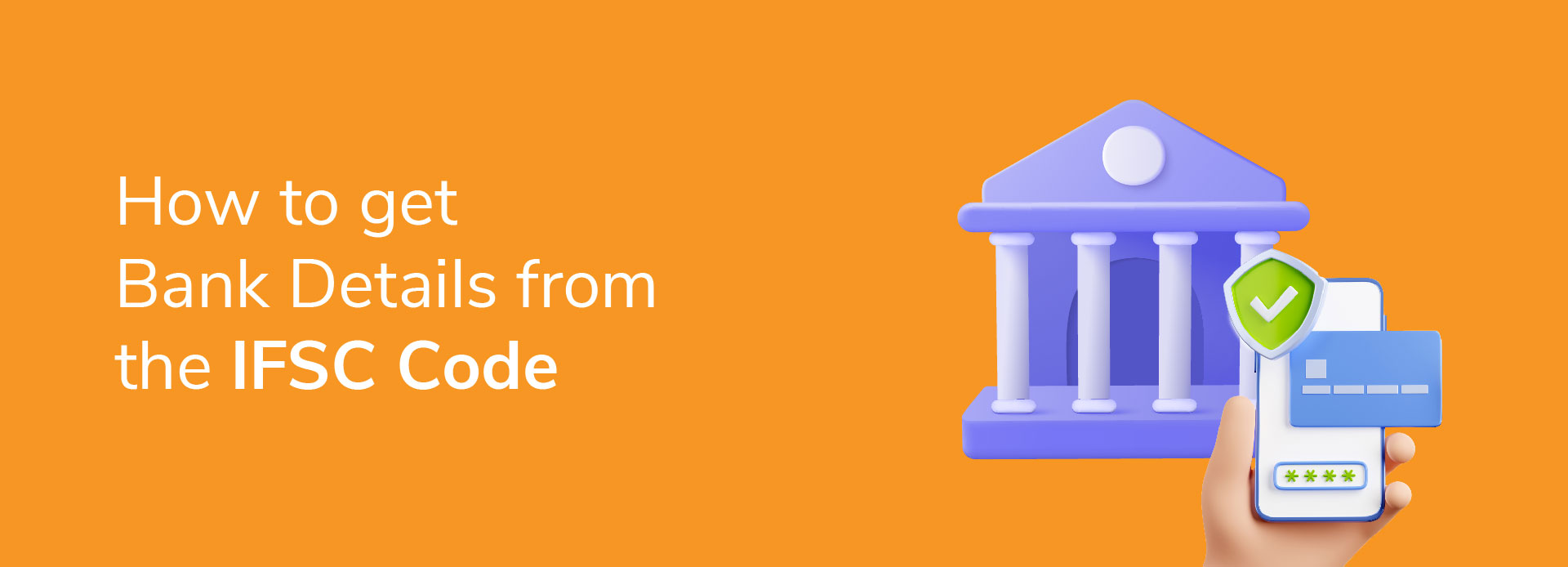
How To Get Bank Details Through IFSC Code?
18 June 2024 | By INDIE
Gone are the days when transferring funds from one account to another involved hours of waiting at the bank. In today’s digital-savvy world of Internet banking, sending and receiving money, among other facilities, are just a click away. Thanks to the boom of digital payments, the Indian Financial System Code (IFSC) has become an integral part of the easy payment procedure that we all enjoy from the comforts of our homes.
Did you know that you can do much more than just find bank branches through IFSC Codes? Read on to explore.
What Is IFSC Code and Why Do We Need It?
Indian Financial System Code, popularly known as IFSC Code, is a unique alphanumeric code utilized to facilitate electronic funds transfer in India. Specifically, it is employed for transactions within the country's banking sector, particularly for interbank transactions. Instituted by the Reserve Bank of India (RBI), the IFSC Code serves as a distinctive identifier for each bank branch engaged in the National Electronic Funds Transfer (NEFT), Real Time Gross Settlement (RTGS), and Immediate Payment Service (IMPS) systems.
However, it is worth noting that understanding the IFSC Code is paramount for both financial institutions and customers. For banks, it streamlines the process of verifying and routing transactions, enhancing operational efficiency and reducing the likelihood of errors. Meanwhile, customers rely on IFSC Codes to ensure the bank account details of the person they are transferring funds to are correct. IFSC Codes also ensure seamless execution of fund transfers, guaranteeing that transferred funds reach the intended recipient's account swiftly and securely.
In a nutshell, the IFSC Code is a fundamental component of India's banking infrastructure, embodying precision, efficiency, and accessibility. Additionally, you can easily locate a bank branch through an IFSC Code.
How Can You Identify Bank Details Using The IFSC Code?
Identifying bank details using the IFSC Code is a systematic process that involves decoding the alphanumeric code to discern specific information about the bank and its branch.
Understand the Structure:
The IFSC Code typically comprises 11 characters, with the first four characters representing the bank's name, the fifth character being a '0' reserved for future use, and the last six characters denoting the specific branch.
Decode the Bank Name:
The first four characters of the IFSC Code correspond to the bank's name. By referring to a comprehensive list of bank codes, you can decode these characters to determine the name of the bank and bank account details associated with the IFSC Code.
Analyze the Branch Details:
The last six characters of the IFSC Code provide information about the specific branch. These characters are unique to each branch and help pinpoint the exact location and identity of the branch within the bank's network.
Verify Accuracy:
Once you have decoded the bank name and branch details from the IFSC Code, it's essential to verify their accuracy. Cross-referencing with official banking records or online databases ensures that the information obtained is correct and up-to-date
Utilize for Transactions:
Armed with the decoded bank details, you can proceed with various banking transactions, such as electronic fund transfers (NEFT, RTGS, IMPS), knowing that the IFSC Code accurately identifies the recipient bank and branch.
Also Read: Revolutionizing mobile banking with INDIE
Where Can You Find The IFSC Code Of A Bank?
IFSC Codes are commonly printed on bank statements and cheque book issued by the bank. Please look for the IFSC Code associated with the specific branch you are interested in.
Additionally, the RBI website offers a centralized database of IFSC Codes for all banks operating in India. You can search for the IFSC Code of a particular bank branch by providing details such as the bank's name and location.
If you're using a mobile banking app provided by your bank, it likely includes a feature to find IFSC Codes. You can typically search for the IFSC Code by entering details like the bank's name and branch location.
Disclaimer: The information provided in this article is generic and for informational purposes only. It is not a substitute for specific advice in your circumstances. Hence, you are advised to consult your financial advisor before making any financial decision. IndusInd Bank Limited (IBL) does not influence the views of the author in any way. IBL and the author shall not be responsible for any direct/indirect loss or liability incurred by the reader for making any financial decisions based on the contents and information.




